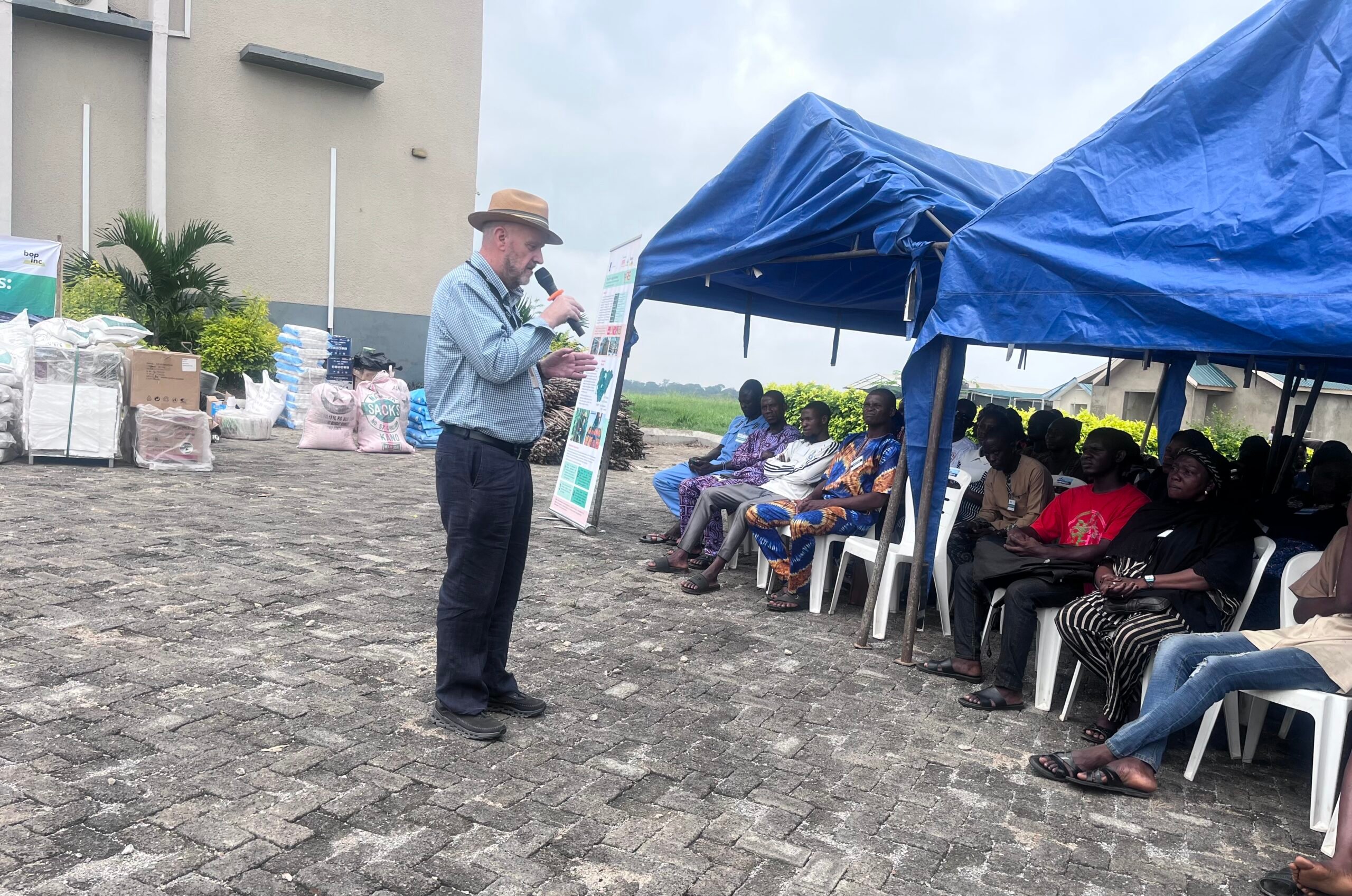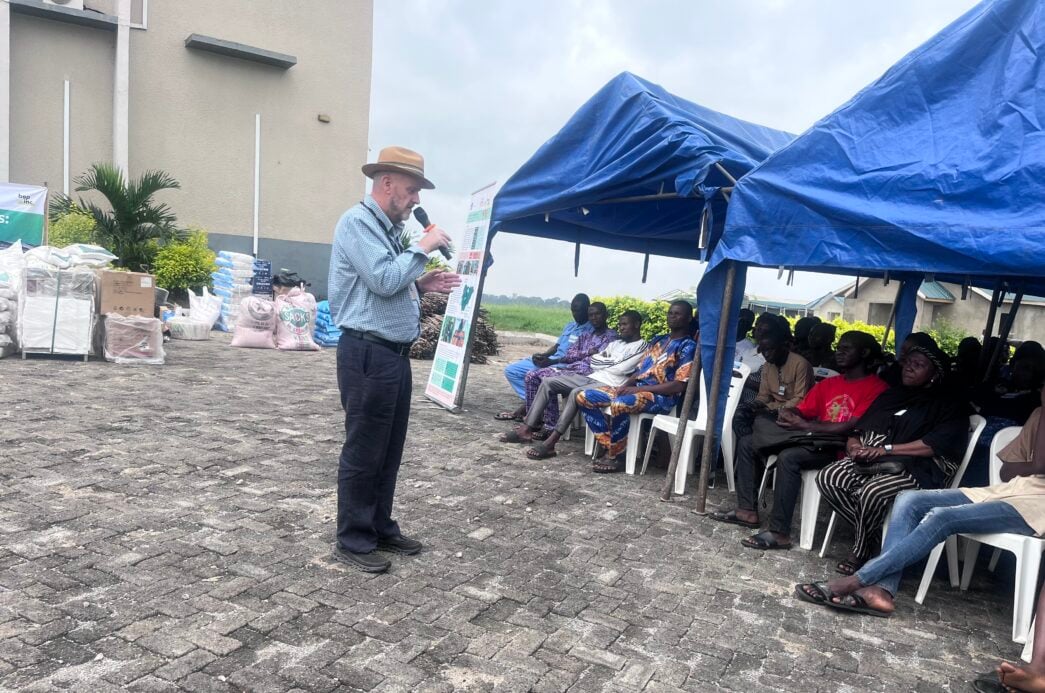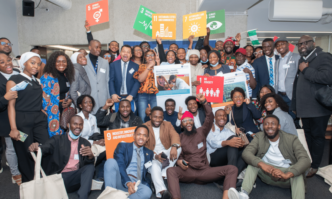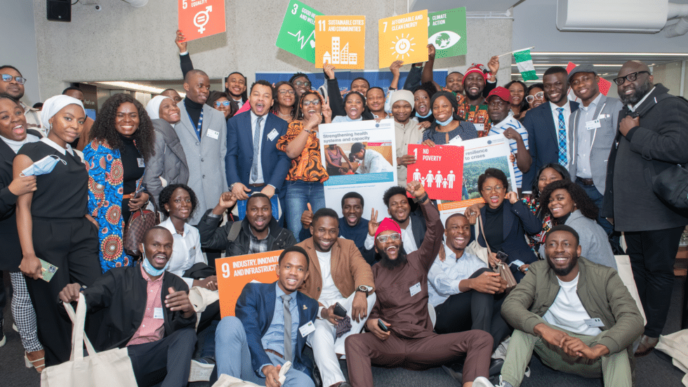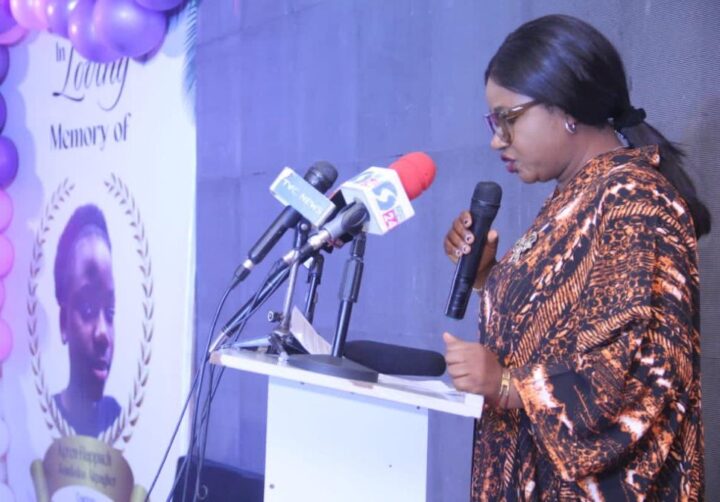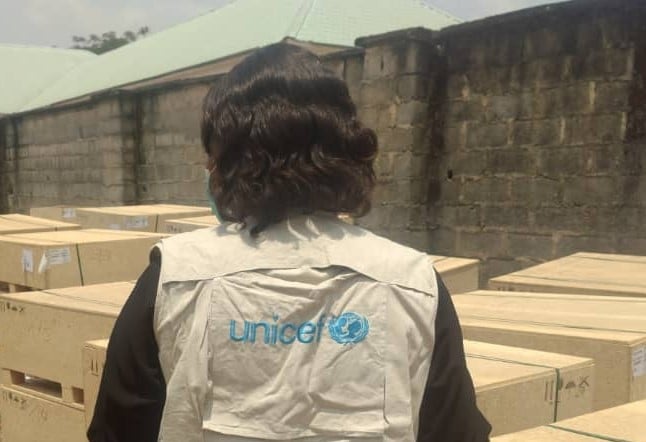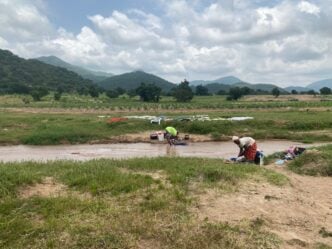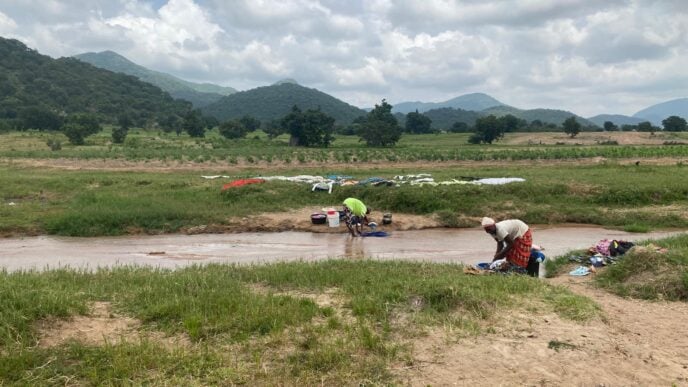Professor Michael Abberton addressing beneficiaries of the YAS Project
The International Institute of Tropical Agriculture (IITA) says empowering young farmers will help Nigeria scale up food production and reduce youth unemployment.
The organisation disclosed this on Tuesday during the donation of essential inputs and various equipment to young farmers trained by the Youth in Agribusiness (YAS) project in Oyo state.
IITA said the initiative is aimed at increasing food production, promoting sustainable agriculture and economic growth in Nigeria.
The organisation said the beneficiaries of the programme are rural and urban dwellers who are interested in starting new agribusiness enterprise or who have started but requires additional skill to expand on scale, productivity and increase income.
Advertisement
Veronica Magaji, agri-business hub manager for the YAS project in Oyo state, said the project will solve the challenge of food insecurity in the country.
“The YAS project is centred on training and equipping young people to be beneficial to themselves within the agricultural space. We look at training people within the ages of 18-35 who are actively involved in agric business or have an interest in starting a business in the agric space,” Magaji said.
“For starters, we call them incubators. We call those already in the business accelerators. We look for how to position them for growth in their businesses. For incubators, we want to give them that foundation to look beyond the risks and uncertainties in agribusiness. We give them a soft start to excel.
Advertisement
“After their training, we visit them to see what they are doing and what else they need. So, we position the support we give them to meet the needs that they have.
“This programme is geared at reducing the rate of youths who are unemployed because having your own business makes you self-employed, and you will be able to employ other people. Secondly, this will increase food production. One of the issues the country is facing is the competition for the available food. It’s the same food the livestock industry is using that companies are also using for raw materials, and the same food we are consuming. So, if we can empower young people to go into food production, we are solving a very important problem, and that is the unavailability of food. We want young people to go into the whole value chain. Our training does not stay on just one value chain.
“We are confident in the people we’ve trained. Before they came into this programme, they were doing at least something small. This support is to encourage them to do more so that they will scale and grow bigger. We had a business growth training for them, and we give them mentorship too, so that anytime they are stuck, we offer a shoulder they can rely on. We also help them with linkages to finance and the market.”
Speaking at the programme, Osun Idowu, representing Aline Mugisho, the CEO of IITA Youth Agripreneurs, said the input distributed to the young farmers will enable them to boost their agricultural businesses.
Advertisement
“From our experience, a lot of organisations do training. But we are not just interested in training. What is important to us is the number of businesses established after the training,” he said.
“We’ve gone an extra mile to support you in starting a business. We’ll follow up with whatever you are able to do. We want to see the success of your agribusiness. It’s a great opportunity. Research has it that not less than 70 percent of new enterprises die in the first two years. In agribusiness, not less than 85 percent die. Our coaching and mentorship programme will help you overcome all those early-stage problems.”
Michael Abberton, head of the genetic resources centre, who represented the IITA senior management team, urged the beneficiaries to make the best out of the project to grow their businesses.
”This is just the start. We’re looking forward to seeing the development of your businesses from here,” he said.
Advertisement
Quadri Oyelami, one of the beneficiaries, said the programme trained young farmers on good agricultural practices and modern farming.
He said: “We were also trained on climate-smart agriculture, and today we are to get support based on our needs. This input is like a propeller that will push us forward to greater farmers.”
Advertisement
The YAS Project is implemented by IITA, with funding support from the Kingdom of the Netherlands.
The support items include solar irrigation system, rotary slashers, defeathering machine, bundles of improved cassava stem, bags of Urea and NPK fertilizers, Gaari fryers, water tanks, vegetable seeds, fish and poultry feed, seedling trays and coco peat, packs of improved maize varieties, irrigation drips, knapsack sprayers, Gaari pressers, and generators.
Advertisement

